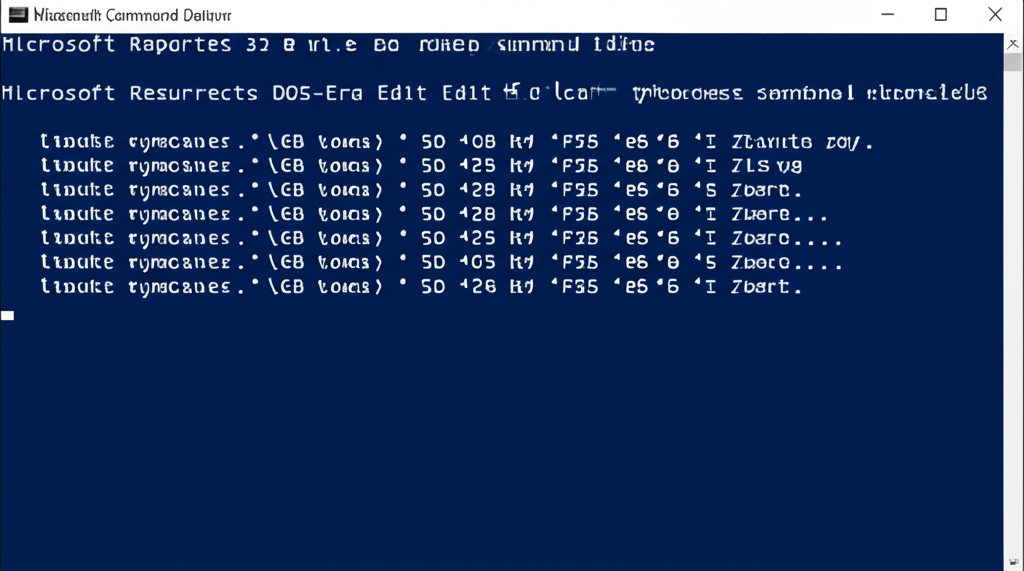Fueling Innovation: Meta's Llama for Startups Program and the Battle for the Open AI Frontier
In the rapidly evolving landscape of artificial intelligence, the battle for dominance is not just about building the most powerful models, but also about fostering a vibrant ecosystem around them. Recognizing this, Meta has unveiled a strategic initiative aimed squarely at the startup community: the Llama for Startups program. This program is designed to incentivize emerging companies to build their generative AI applications using Meta's Llama models, offering a combination of direct support and financial assistance.
The launch of Llama for Startups signals Meta's commitment to expanding the reach and adoption of its open AI models. By providing resources and guidance to early-stage companies, Meta hopes to cultivate a generation of AI innovators deeply integrated into the Llama ecosystem. This move is particularly significant as the competition in the open model space intensifies, with players like DeepSeek, Google, and Alibaba's Qwen vying for influence.
What is Llama for Startups?
At its core, Llama for Startups is an accelerator-style program tailored for companies leveraging generative AI. The program offers participants:
- Direct Support: Access to expertise and guidance from Meta's dedicated Llama team. This includes technical assistance, best practices for model deployment, and help in exploring advanced use cases.
- Potential Funding: Eligible startups may receive financial support, reportedly up to $6,000 per month for up to six months. This funding is intended to help offset the costs associated with building and enhancing their generative AI solutions using Llama.
The program is currently open to U.S.-based firms that meet specific criteria:
- Must be an incorporated company.
- Must have raised less than $10 million in total funding.
- Must have at least one developer on staff.
- Must be actively building generative AI applications.
The application window for the initial cohort is open until May 30, indicating a focused and potentially rapid selection process.
Meta's blog post announcing the program emphasized the collaborative nature of the initiative, stating, “Our experts will work closely with them to get started and explore advanced use cases of Llama that could benefit their startups.” This hands-on approach suggests Meta is not just providing models but actively investing in the success of companies building on its platform, aiming to create strong, mutually beneficial relationships.
The Strategic Importance of Llama in Meta's AI Vision
Meta's push with Llama is a cornerstone of its broader AI strategy. Unlike some competitors who favor proprietary, closed models, Meta has positioned Llama as a family of open models. This open approach allows developers and researchers worldwide to download, modify, and deploy the models, fostering rapid innovation and widespread adoption. The sheer scale of Llama's reach is already significant; Meta has reported that its Llama models have accumulated more than a billion downloads to date. This massive download count underscores the potential for Llama to become a foundational technology across numerous applications and industries.
By launching Llama for Startups, Meta is actively working to translate this download volume into concrete, commercially viable applications. Startups are often at the forefront of innovation, quickly identifying and exploiting new market opportunities. By empowering these agile companies with direct access to Llama expertise and resources, Meta accelerates the development of real-world use cases, which in turn validates and strengthens the Llama ecosystem.
This strategy also serves as a defensive measure against the rising tide of competition. While Llama has gained significant traction, the open model space is becoming increasingly crowded. Rivals such as DeepSeek, Google (with models like Gemma, which shares some architectural similarities with Llama), and Alibaba's Qwen are also releasing powerful models, some under permissive licenses. By nurturing its startup ecosystem, Meta aims to create a sticky environment where developers become deeply familiar and invested in the Llama framework, making it less likely for them to switch to competing models.
Navigating Challenges and Controversies
Despite its strategic importance and widespread adoption, the Llama project has not been without its challenges and controversies in recent months. These setbacks highlight the intense scrutiny and rapid pace of development within the AI field.
One notable challenge has been reported delays in the rollout of anticipated flagship models. For instance, there were reports that Meta had delayed the release of a high-profile model, potentially named Llama 4 Behemoth, due to concerns about its performance on key benchmarks. Developing state-of-the-art AI models is an incredibly complex task, and achieving desired performance levels across a range of metrics can be difficult, often requiring extensive iteration and fine-tuning.
Adding to the scrutiny, Meta faced allegations regarding the benchmarking of its Llama 4 Maverick model. Specifically, the company had to address claims that it had artificially boosted scores on LM Arena, a popular crowdsourced benchmark for evaluating large language models. The controversy arose because Meta reportedly used a version of Maverick “optimized for conversationality” to achieve a high score on LM Arena, but subsequently released a different, less performant version publicly. Such incidents underscore the complexities and potential pitfalls of AI benchmarking, where subtle differences in model versions or evaluation methodologies can lead to significant discrepancies and raise questions about transparency and fairness.
These challenges, while potentially impacting public perception and developer confidence in the short term, also highlight the dynamic nature of AI development. The rapid iteration, the pressure to release competitive models, and the evolving standards for evaluation all contribute to a complex environment that Meta, like other major AI labs, must navigate.
Meta's Broader AI Ambitions and Massive Investments
The Llama for Startups program and the ongoing development of the Llama model family are part of a much larger, ambitious push by Meta into the generative AI space. Meta's leadership has articulated a vision where AI permeates all of its products and services, from social media feeds and advertising tools to hardware like the Quest VR headsets and future augmented reality devices.
The company holds significant revenue expectations for its generative AI initiatives. While initial forecasts were more modest, Meta has projected that its generative AI products could generate between $2 billion and $3 billion in revenue in 2025. Looking further ahead, the company has shared incredibly optimistic long-term projections, suggesting that generative AI could potentially rake in anywhere from $460 billion to a staggering $1.4 trillion by 2035. These figures, while speculative, illustrate the immense economic potential Meta sees in AI and the scale of its aspirations.
To realize these ambitions, Meta is making substantial investments across various fronts:
- Model Development and Deployment: Beyond the core Llama models, Meta is developing specialized AI capabilities and exploring different deployment strategies. This includes establishing revenue-sharing agreements with companies that host its Llama models, creating new distribution channels and monetization opportunities.
- API Access: Recognizing the need for developers to easily integrate Llama into their own applications, Meta recently launched an API for its Llama models. An API simplifies the process for developers to access and utilize Llama's capabilities without needing to manage the underlying infrastructure, potentially accelerating the development of Llama-powered products and services.
- Consumer AI Products: Meta is also building consumer-facing AI experiences, most notably the Meta AI assistant. Integrated across its family of apps (Facebook, Instagram, WhatsApp, Messenger), Meta AI is powered by the latest Llama models and aims to provide helpful, conversational AI capabilities to billions of users. While currently free, there have been discussions about potential future monetization strategies for Meta AI, including the possibility of showing ads or offering a subscription tier with additional features.
- Infrastructure Investment: Powering cutting-edge AI models and services requires immense computational resources. Meta is undertaking massive capital expenditures to build and expand the necessary infrastructure. In 2024, Meta's budget for “GenAI” development alone exceeded $900 million, and this figure is expected to surpass $1 billion in 2025. This is separate from the colossal costs associated with building and maintaining the data centers and acquiring the specialized hardware needed to train and run these models. Meta has previously indicated plans to spend between $60 billion and $80 billion on capital expenditures in 2025, with a significant portion dedicated to new data centers equipped with the vast quantities of GPUs required for AI workloads. The company aims to have 1.3 million GPUs for AI by the end of the year, a testament to the scale of its infrastructure ambitions.
These investments underscore the high stakes involved in the AI race. Developing and deploying powerful AI models is incredibly expensive, requiring not only top-tier research talent but also unprecedented levels of hardware and data center capacity. Meta's willingness to commit tens of billions of dollars highlights its belief that AI, and specifically generative AI, will be a fundamental driver of future growth and innovation.
Why Startups Might Choose Llama
For a startup navigating the complex AI landscape, choosing a foundational model is a critical decision. Meta's Llama models offer several compelling advantages that the Llama for Startups program aims to amplify:
- Openness and Flexibility: As open models, Llama provides startups with a high degree of flexibility. They can download the model weights, run the models locally or on their preferred cloud infrastructure, and fine-tune them extensively for specific tasks and domains. This contrasts with closed APIs, which offer less control and can be subject to changes in pricing or terms of service.
- Performance: Llama models, particularly the latest versions, are competitive with many state-of-the-art models on a range of benchmarks and tasks. For startups needing powerful language understanding and generation capabilities, Llama offers a strong foundation.
- Community and Ecosystem: The open nature of Llama has fostered a large and active community of developers and researchers. This community contributes to ongoing improvements, develops tools and libraries, and provides peer support, which can be invaluable for startups. The Llama for Startups program aims to further strengthen this community by providing direct access to Meta's internal expertise.
- Cost-Effectiveness (Potentially): While training large models is expensive, running and fine-tuning open models can sometimes be more cost-effective for startups compared to relying solely on usage-based pricing from closed API providers, especially as their usage scales. The funding provided by the Llama for Startups program directly addresses these initial costs.
- Direct Support from Meta: Access to Meta's Llama team is a significant draw. Startups can receive tailored technical guidance, helping them overcome challenges and optimize their use of the models, potentially accelerating their development cycles.
However, startups must also consider the potential downsides, such as the infrastructure required to run larger models and the need for in-house expertise to manage and fine-tune them effectively. The benchmark controversies also highlight the importance of independent evaluation and understanding the specific strengths and weaknesses of different model versions.
The Broader Impact on the AI Ecosystem
Meta's Llama for Startups program has implications that extend beyond Meta and the participating companies. It represents a significant investment in the open AI ecosystem as a whole. By supporting startups building on open models, Meta helps to counterbalance the dominance of companies focused primarily on closed, proprietary AI systems.
A thriving open model ecosystem encourages transparency, fosters collaborative research, and can potentially lead to more democratized access to powerful AI technology. Startups building on open foundations can contribute back to the community, creating a virtuous cycle of innovation.
The program also highlights the increasing importance of strategic partnerships between large tech companies and startups in the AI space. As AI development becomes more complex and resource-intensive, collaborations that provide startups with access to models, infrastructure, and expertise, while giving larger companies insights into cutting-edge applications and market trends, are likely to become more common.
Furthermore, the competition spurred by initiatives like Llama for Startups can drive overall progress in the field. As different model providers compete for developer mindshare and adoption, it incentivizes them to improve model performance, efficiency, and usability, ultimately benefiting the entire AI community.
The Future of Open vs. Closed Models
The Llama for Startups program is a clear statement from Meta about its belief in the power and potential of open AI models. The debate between open and closed AI models is ongoing, with valid arguments on both sides.
Proponents of open models emphasize transparency, collaboration, and the ability for the broader community to scrutinize and improve the technology. They argue that open models can accelerate innovation, reduce vendor lock-in, and potentially lead to safer AI systems through collective oversight.
Advocates for closed models often highlight the significant costs of training and maintaining state-of-the-art models, arguing that a proprietary approach is necessary to recoup these investments and fund future research. They may also emphasize the control a closed approach offers over model deployment and safety features.
Meta's strategy with Llama attempts to bridge this gap by releasing powerful models under a relatively permissive license, allowing widespread use while still maintaining control over the core development and benefiting from the resulting ecosystem activity. The Llama for Startups program is a key tactic within this hybrid approach, actively cultivating the commercial side of the open ecosystem.
The success of programs like Llama for Startups will likely play a role in shaping the future balance between open and closed AI development. If startups leveraging open models can achieve significant commercial success and drive innovation, it will strengthen the case for open AI as a viable and powerful alternative to purely proprietary systems.
Conclusion
Meta's launch of the Llama for Startups program is a significant development in the competitive world of generative AI. By offering direct support and funding, Meta is making a clear bid to attract and empower the next wave of AI innovators building on its Llama models. This initiative is strategically important for Meta, helping it to solidify its position in the open model landscape, counter increasing competition, and accelerate the development of real-world applications for its AI technology.
While Llama has faced recent challenges related to performance and benchmarking, Meta's massive ongoing investments in AI research, development, and infrastructure underscore its long-term commitment. The Llama for Startups program is a tactical move within this broader strategy, aiming to translate Meta's foundational AI research into tangible ecosystem growth and future revenue streams.
For eligible startups, the program offers a valuable opportunity to gain access to Meta's expertise and resources, potentially providing a significant boost in their journey to build innovative generative AI products. As the AI ecosystem continues to mature, initiatives like Llama for Startups will be crucial in shaping which models and platforms become the foundational building blocks for the future of artificial intelligence.



















